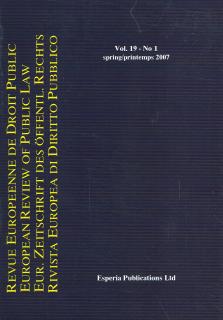
Rights of Foreigners: The Netherlands
Ton van den Brink / Flora Goudappel / Jaap de Zwaan
Erasmus University Rotterdam, School of Law
The integration of immigrants in Dutch society has grown to become so much a cause for public concern that it was one of the key elements of the so-called ‘Fortuyn revolt’ of 2002. The 2000 new Aliens Act marks a significant change in the system that had been gradually built since the Aliens Act 1965. The Aliens Act applies only to aliens wishing to stay for a longer period than three months, as a stay for a shorter period is allowed without a permit. Asylum seekers can be granted a residence permit for a limited period (max. 3 years). After that, the asylum seeker may be granted a residence permit for an indefinite time. Illegal immigration is regulated by the Aliens Act as well. This Act provides for measures such as taking illegal immigrants in custody and, eventually, expulsion. Citizens of other EU Member States are not subject to the provisions of the Alien Act 2000. Residence permits for EU citizens are therefore declaratory in nature. The fight against terrorism has not led to problems concerning fundamental (constitutional) rights. It is not strictly limited to measures against foreigners, especially third-country nationals. The Dutch Constitution already allowed Dutch nationals to be extradited. There are a few limitations placed on this extradition system, as there has, e.g., to be a guarantee that the fundamental rights of the national will not be violated, so no death penalty. The only real problem concerns the possibility of a prolonged period of remanded custody for suspects of terrorist activities. All activities are co-ordinated by the National Anti-Terrorism Co-ordinator, whose activities fall partly under the Minister of the Interior and partly under the Minister of Justice. In addition, there are special and more general government agencies involved in the actual implementation: the General Intelligence and Security Service (AIVD), the police and the Immigration and Nationalisation Service (IND).





















